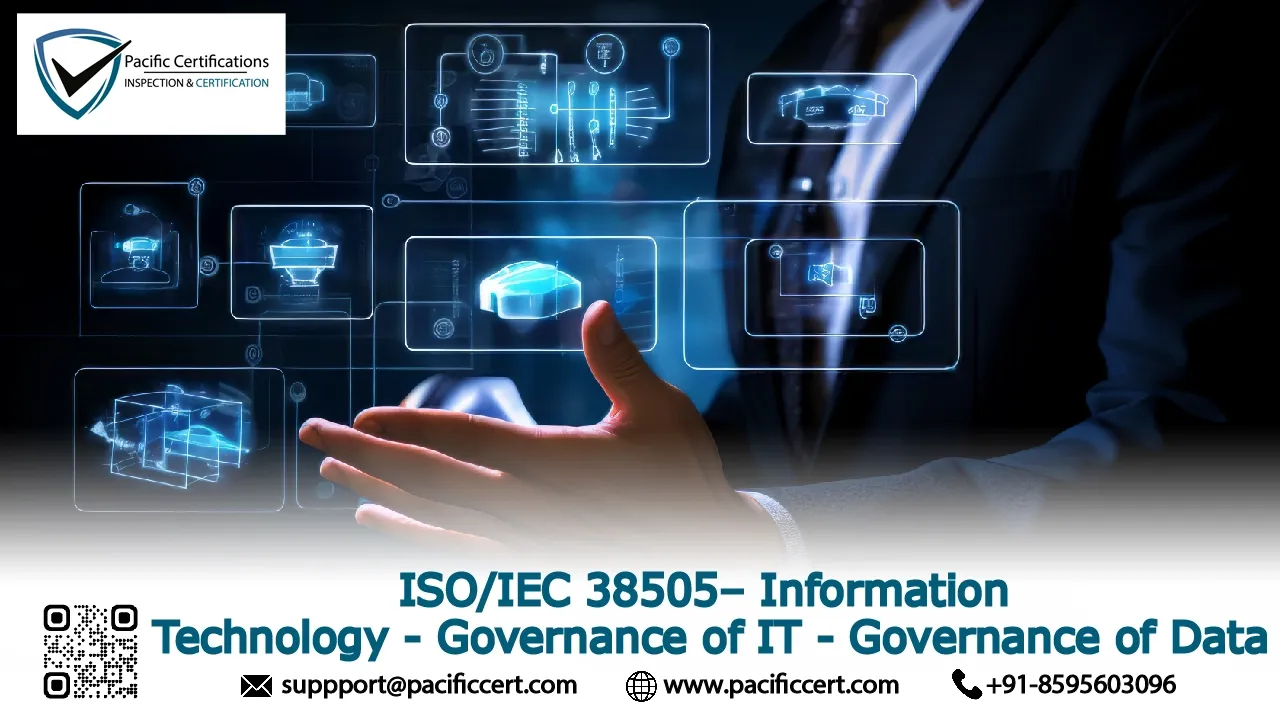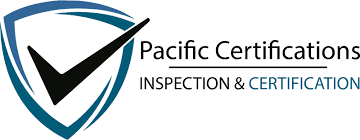ISO/IEC 38505– Information Technology — Governance of IT — Governance of Data

Introduction
SO/IEC 38505 provides a framework for governance of data in the greater ambit of IT governance. It enables organizations to ensure that the data is managed as an asset worthy of oversight and accountability, in the interest of business goals, and in adherence to requirements from regulators.
In an era of data being heavily relied upon in decision-making and operations, managing data has become more relevant than ever before. The emphasis of this standard is on governing the data as part of the overall governance of IT, with the aim to increase the potential for business value through improvements in the areas of data quality, security, accessibility, and compliance—operationally being second to none.
In this blog, we discuss some major aspects of ISO/IEC 38505-1:2017 and highlight its importance in IT governance, which would also uncover key benefits acquired by organizations implementing strong data governance framework.
For more information, contact [email protected].
Effective governance of data ensures that organizations treat data as a valuable asset, enabling trust, transparency, and accountability in a digital economy.
Introduction
Data governance is a vital component of responding to the expanding amount of data that organizations create, obtain, and utilize. Effective governance promotes accuracy, availability, security, and alignment with broader organizational strategy. Data-driven demands and regulatory pressures continue to increase, making data governance practices even more necessary.
The standard ISO/IEC 38505 provides guidance to enable organizations to develop and manage a framework for data governance and treating data as a planned asset. Data governance should align with business requirements and IT governance practices. Developing data governance processes will enable organizations to make the most of their data, while managing risks.
What is ISO/IEC 38505-1:2017?
ISO/IEC 38505 is specifically about governing data in the context of IT governance. It does this through a set of governing principles, guidelines and best practices to use data in a way that meets the goals of the business, mitigates risk, and follows laws and regulations. ISO/IEC 38505 also seeks to offer a consistent set of principles for data governance so that data can be creatively managed in a way to ensure its utility as a planned asset.
The guidelines in ISO/IEC 38505 is part of the larger ISO/IEC 38505 series which focus on the governance of IT and the role that data, as an element of IT, plays in governing IT. The guidelines in ISO/IEC 38505 can be applied to all organizations, regardless of size or industry (including regulated industries like finance, healthcare and government).
What are the requirements of ISO/IEC 38505?
ISO/IEC 38505 defines several key requirements that organizations must meet to ensure that their data governance practices are effective and compliant with best practices. These requirements are designed to improve data management maturity, improve data quality, and align with regulatory standards.
- Aligning data governance with the organization’s overarching goals and objectives is important. It provides assurance that data management activities will be aligned to support business functions, decision making and operational effectiveness. Organizations need to have a clear understanding of how data contributes to delivering business objectives and ensure it is governed in a manner that contributes value to the business.
- It is important to have clear ownership and accountability associated with data. The responsibilities and accountabilities for data management processes should be clearly defined at multiple levels in the organization. This should help to ensure data quality, security and access is less risky and is less likely to lead to data abuse and non-adherence to regulations.
- For organizations that depend on accurate and consistent data for decision-making, maintaining a high level of data quality and integrity is critical. The ISO/IEC 38505 standard introduces elements of a framework for specifying data quality controls, what data quality monitoring could look like, and dealing with data quality issues such as data accuracy, data completeness and data consistency.
- The standard emphasizes the importance of identifying and managing risks associated with data, such as data security breaches, privacy violations, and non-compliance with data protection laws. Organizations should implement risk assessment processes and controls to mitigate these risks and protect data assets.
- Organizations must ensure that their data governance practices comply with applicable legal requirements. This includes understanding data protection and privacy laws, industry regulations, and internal policies to ensure that data is handled in compliance with legal obligations.
- Data governance requires collaboration among different stakeholders, including business units, IT teams, and legal departments. The standard encourages a shared approach to data stewardship, ensuring that data is responsibly and ethically managed throughout its lifecycle.
Tip: Assign clear accountability for data governance at the board level and appoint data stewards in each department to ensure data quality, compliance, and alignment with business objectives.
What are the benefits of ISO/IEC 38505 for Organizations?
Adopting ISO/IEC 38505 and establishing a strong data governance framework offers several benefits
• Guarantees data validity, reliability, and consistency, this bolstered decision-making processes and improved operational efficiency.
• Supports organizations to uncover and manage data-related weaknesses such as breaches or data non-compliance, preventing the organization from legal and reputational risk.
• Provides assurance that data governance practices comply with legal and regulatory obligations, consequently limiting penalties for non-compliance.
• Able to use data to its value by ensuring it is easier, and consequently more useful for decision-making, improving organizational insights and performance.
• Quality data, in addition to good data practices and controls, allows for better organizational decision-making, allowing for better business outcomes and guidance.
• Improved data management and usage efficiencies: utilize and minimize waste resulting in better overall effectiveness for the organization.
How to Implement ISO/IEC 38505-1:2017?
To implement ISO/IEC 38505 and establish effective data governance, organizations should follow these steps:
• Understand the Requirements: Get to know the standard's rules and requirements and how they address your organization's governance needs in regards to data.
• Define all Roles and Responsibilities: Establish clear data ownership and responsibility across the organization and at each level.
• Create a Data Governance Framework: Develop a governance framework that meets business objectives and incorporates foundational elements in each area, such as data quality, risk, and compliance.
• Establish Policies and Procedures: Establish and implement processes to effectively manage data, especially covering compliance, security, and quality.
• Execute Review and Assess: Execute regular monitoring and assessment of all of your data governance activities. Use measurement, coverage, and feedback to assess performance.
• Focus on Continuous Improvement: Always look to improve your data governance processes to adapt to changing business needs, regulatory changes and technology advances.
Contact Us
For assistance with implementing ISO/IEC 38505 or improving your data governance practices, Pacific Certifications is here to help. Our experts can guide you through the process of establishing effective data governance frameworks that ensure compliance and maximize the value of your data.
Contact Details:
- Email:[email protected]
- Website:www.pacificcert.com
Ready to get ISO 38505 certified?
Contact Pacific Certifications to begin your certification journey today!
Suggested Certifications –
Read more: Pacific Blogs

